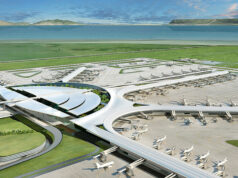THE PHILIPPINES placed 94th out of 190 economies on the ease of paying taxes, according to the World Bank and PricewaterhouseCoopers’ Paying Taxes 2019 report, after the country ranked 105th a year earlier.
The Philippines scored 71.80 points, below the Ease Asia and the Pacific average of 72.98 points.
In the region, the Philippines outperformed the scores posted by Indonesia and Laos of 68.03 and 54.22, respectively. Thailand scored 77.72, and Malaysia 76.06.
The study found that Philippine taxpayers have to pay 14 taxes, an improvement from 20 in the previous report. The regional average is 21.2.
It now takes 181 total hours to prepare, file, and pay taxes in the Philippines, an improvement from 182 hours in the previous report. The East Asia and Pacific average is 180.9 hours. The tax contribution rate was 42.9%, above the 33.5% regional average.
The report’s post-filing index — a new measure of the efficiency of claiming tax refunds — had the Philippines scoring 50, against the regional average of 56.42.
In 2018, the Philippines implemented the Tax Reform for Acceleration and Inclusion (TRAIN) law.
The law lowered personal income, donor, and estate tax rates, reduced value-added tax exemptions, while raising taxes on tobacco, automobiles, fuel, coal, minerals, documentary stamps, and imposing new taxes on sugar-sweetened beverages and cosmetic procedures, among others, while improving tax administration.
“Technology is transforming the nature of jobs that are available and the skills needed to do them. This in turn is likely to require greater investment in human capital, especially in learning and development. It is therefore vital that governments are able to understand the challenges ahead and how they can build resilience for public finances in the long term. We hope that this report will be of value to all those interested in making tax systems more efficient, whether in government, business, academia or civil society,” said World bank Senior Manager Rita Ramalho.
Andrew Packman, leader for Tax Transparency and Total Tax Contribution at PwC, added: “This report highlights the extent to which, when implemented strategically, new technology can drive considerable efficiencies for tax authorities and businesses alike. Yet it is also important to remember that improvements to tax systems do not come from technology alone. Simple, coherent, well understood and properly administered tax systems can help to lower the barriers for businesses to move from the informal to the formal sector. This can broaden the tax base and raise revenue without requiring new taxes. To do so, tax professionals and policy-makers need to have access to the correct skills and insight, which technology gains can help to support.” — Elijah Joseph C. Tubayan



